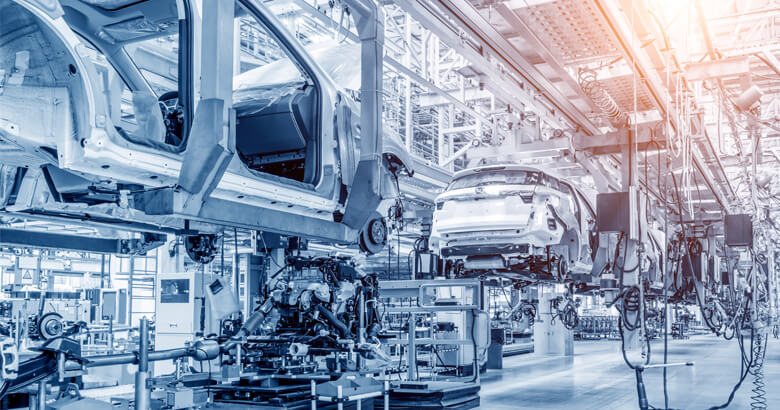VDA4998 – The First Industry-Wide Recommendation for Using APIs in the Automotive Supply Chain

The auto industry is no stranger to electronic data interchange – EDI for short – and has been successfully using this for years. These days, this can be supplemented and complemented by API technologies, which enable fine grain processing and make processes more transparent. The Verband der Automobilindustrie, the German automobile industry association, has since introduced its first guidelines for using APIs in the industry. VDA 4998 focusses on one of the core processes in the auto industry, namely controlling the flow of incoming parts and components to enable fine-tuned, responsive, continuous production. In this guest post, Jörg Walther, a VDA expert from its production, logistics and after market department, explains what is behind the new guideline.
The main purpose of digitalisation is to save time and resources. Even extremely tightly timed supply chains can be made more efficient and transparent with the help of information from sensors or GPS, which is then made available via an API.
With this in mind, members of the VDA’s working group for structured data and information exchange formed a project team. Working with partners from the logistics industry, the goal was to work out some standards for transmitting and using the data API technology can make available.
Benefitting from the openness of a REST-API
An initial step was to find out how the information could be mapped best to promote availability, simplicity, openness and future-proof implementation. Taking these and many other aspects into account, we ultimately decided to recommend a REST API technology. It supports small, lightweight information packets and software modules, uses the native Internet http, which means it can be used by both browsers and software modules, and can also be integrated into apps for mobile devices.
Internationally valid
The VDA is an association that cooperates in an international network with other national associations (e.g. GALIA, SMMT) and international, continent-wide organisations. These include ODETTE for Europe, AIAG for the Americas and JAMA/JAIPA for Japan. This makes it increasingly important to adhere to international standards for our data exchange. We ultimately decided on the specifications for OPEN API V3.0, which is recommended in the UN/CEFACT API design rules. The data structure employs artifacts of the UN/CEFACT Reusable Data Model (RDM). This allows us to define specifications for using an API within an internationally recognized, uniform framework, regardless of the actual application (logistics, finance, master data, etc.). As a result, it should be noted here:
Once these foundational decisions had been made, we then needed to define use cases for the new REST API. Using methods from rapid application development, we were able to define several use cases which needed to feature in the first prototypes. These included capacity reservation, transportation updates, confirming handover, deviations from expected load and reporting damage.
APIs complement EDIFACT messages and fill current gaps in our processes
We drew up a diagram to show where additional information and messages may complement the established EDIFACT messages. Both the VDA and stakeholders from the industry have consistently made it clear that there are no plans to replace EDIFACT. Instead, this additional technology would serve to fill gaps for which EDIFACT does not (yet) have a viable solution.
The result is available to view on GitHub, SwaggerHub and the VDA website. It includes the process description, the data and functional structure, and an importable YML file. Following the prototype, we intend to go into a pilot phase.
Striving to reduce the consumption of resources in our delivery processes, also described above, we were (and continue to be) working on a parallel project with the goal to make the transport process completely paperless. The result can be found in VDA guideline 4999 on paperless transportation processes. This project started by clarifying the terms used in the world of transport. This ensured that all stakeholders had a common understanding to allow us to analyse their process requirements and the national and international framework conditions. The analysis was followed by critically considering what documents (whether paper or electronic) were actually needed for a watertight process.
How can SEEBURGER help you easily implement VDA 4998?
The SEEBURGER Business Integration Suite is a central platform which offers a wide variety of interfaces to connect with your inhouse systems, can process both current and relevant legacy data formats, and converts these into the format your partners need to move along the process. These may involve VDA, ODETTE & EDIFACT messages, all the way to REST API data as described above. The VDA guideline can be entered directly into the SEEBURGER API management system and its conversion modules. Once configured, you can then exchange data directly with your partners. The powerhouse behind this is available in on premises, hybrid or cloud-based variants. Would you like to know more? The VDA and SEEBURGER specialists would be delighted to answer any questions.
Thank you for your message
We appreciate your interest in SEEBURGER
Get in contact with us:
Please enter details about your project in the message section so we can direct your inquiry to the right consultant.
Written by: Jörg Walther
Jörg Walther has over 20 years experience as an expert on automated data exchange, working on projects to automate processes in the automotive supply chain. Since 2010, he has held responsibility for the working groups for Structured Information and Data Exchange, and Key Technologies, among others, in the VDA's Production, Logistics and Aftermarket department. He represents the VDA in European and global organizations such as Odette International, the Joint Automotive Industry Forum (JAIF) and UN/CEFACT.





